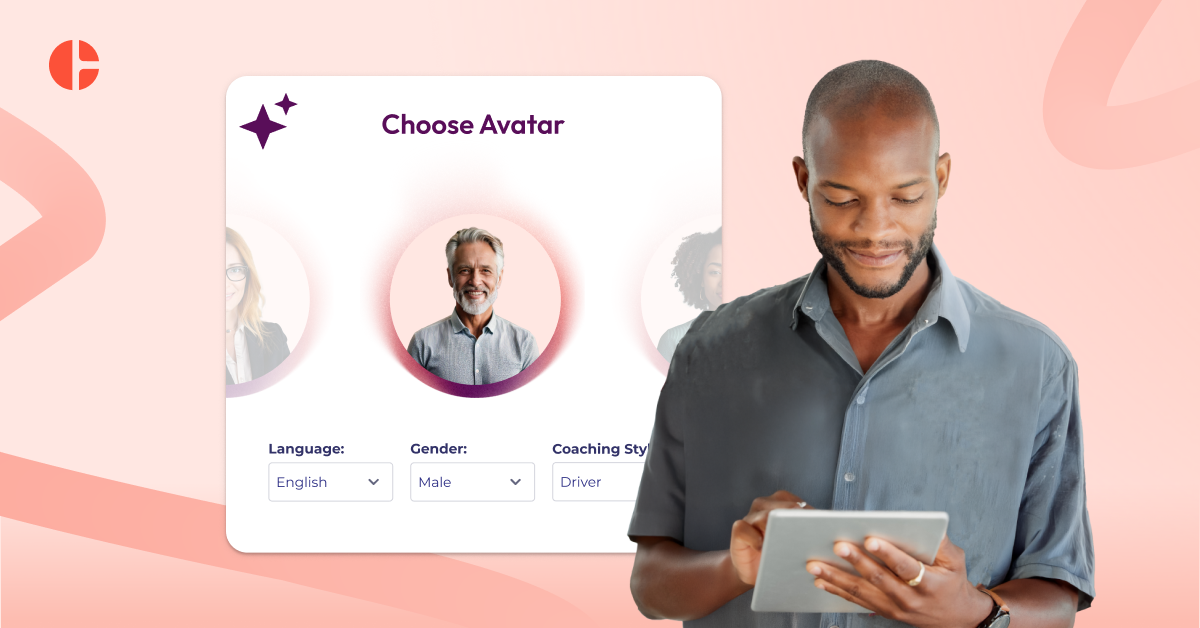How to Build a Coaching Culture in a Hybrid Workplace

Hybrid work is not only the dominant workplace model adopted by many businesses—it’s also highly desirable to employees. Many adults who worked from home in 2021 now prefer a hybrid approach, citing greater work-life balance as the main benefit.
However, hybrid work demands more personal responsibility. Employees must decide where they work, how they manage their time, and how they deliver results. In this structure, success is measured more by output than time spent at a desk. That means individuals need to be self-sufficient—and leaders must empower them to be.
A coaching culture can help to develop both the mindset and the skills needed to thrive in this model. But how do organizations make the transition?
Align Coaching Culture with HR Strategy
The starting point is to ensure that a coaching culture in a hybrid environment aligns with the broader HR strategy. Begin with a focused review of the existing HR strategy and consider where coaching—and a coaching approach—fits within this framework.
To successfully build a coaching culture tailored to a hybrid workforce, HR leaders must set goals specifically designed for hybrid work. Simply migrating face-to-face approaches into the digital world will not suffice.
One helpful framework is Jonathan Passmore’s (2021) Coaching Culture Model, which outlines four “zones” organizations can use to evaluate their current position and plan their next steps.
Zone 1: Leaders – Managed Access to External Coaches
In this first zone, the focus is on supporting top talent—such as board members and senior leaders—through access to external executive coaches. In hybrid environments, this can happen through either digital or face-to-face coaching.
Interestingly, research shows that coaching leaders has a positive ripple effect, benefiting their immediate teams as well. By starting with leaders, organizations can create momentum for a broader coaching culture.
Zone 2: Everyone – Democratizing Coaching
In this zone, coaching expands beyond senior leaders to include managers, supervisors, and employees across the board. A common way to achieve this is through a digital coaching platform, which makes coaching accessible and scalable across the organization.
Zone 3: Approach – Coaching as the Default Leadership Style
Here, the goal is to embed coaching as a core element of leadership. This means integrating coaching skills into all leadership, management, and supervisory training programs.
Managers must learn not only what coaching is, but also when and how to apply it effectively. Training should be designed with hybrid work in mind, using both synchronous and asynchronous virtual learning formats.
Zone 4: Distributed – Coaching Beyond Organizational Boundaries
In the final zone, the coaching culture extends beyond the organization itself. Many businesses now operate in ecosystems with partners, suppliers, and agencies.
Adopting a coaching approach in these relationships helps foster collaboration and shared value creation. In public sector organizations, this might mean cross-boundary coaching. In the private sector, it may take the form of development-focused project delivery, with long-term relationship building as a core goal.
Taking Advantage of Digital Tools
Digital coaching is a powerful enabler of scalable, flexible support—especially in hybrid environments. Employees can fit coaching into their schedules without the need for travel, making it more accessible than traditional in-person sessions.
Today’s digital coaching platforms often include additional resources such as articles and interactive activities that coachees can engage with between sessions, further cementing their learning.
By implementing digital coaching, organizations can embed coaching into their culture and realize benefits that go beyond traditional HR interventions.
The Power of a Coaching Culture
According to the Association for Talent Development (ATD), organizations with a strong coaching culture see measurable benefits:
- 61% of employees are highly engaged, compared to 53% in organizations without one.
- 62% report improved retention of top performers.
These are compelling reasons why cultivating a coaching culture should be a strategic priority for any business—especially in the hybrid world of work.
Let me know if you'd like this in a downloadable format (like Word or PDF), or need it localized for a specific market.
FAQ
Unlike content-first platforms or one-size-fits-all solutions, CoachHub combines global scalability, measurable outcomes, and coaching tailored for regulated, performance-driven environments. We're not just here to train, we partner to transform.
Yes. Coaching builds inclusive leadership, empathy, and adaptability. It equips managers to lead multi-generational teams and align diverse expectations across seniority levels and skill sets.
By focusing on resilience and mindset shifts. Our coaching solutions give managers and teams the tools to stay energised and engaged in high-pressure, regulated environments. This helps them maintain clarity, sustain performance, and adapt confidently through continuous change.




.svg)


.svg)





.png)



